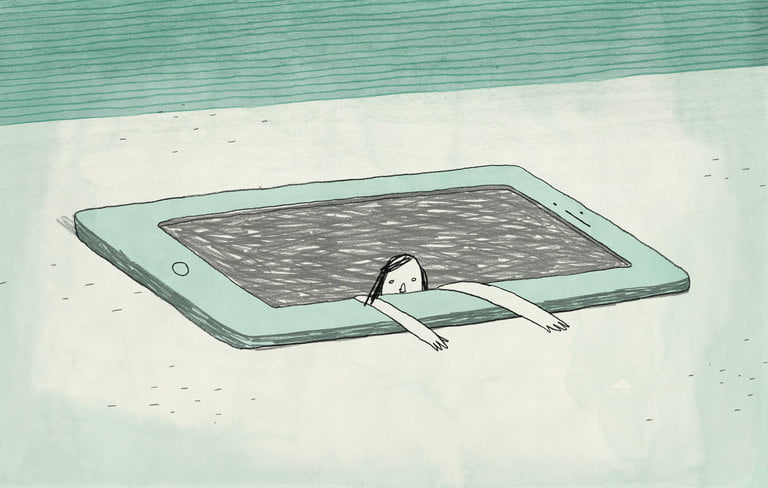
Do you ever suspect people are posting images on social media that show them in a one-dimensional way, to make others think they are perfect, with a perfect life?
Is your social media presence an accurate depiction of who you are in real life?
Talk with a classmate about social media personas, for famous people and for ordinary citizens, and how those personas are crafted and presented online.
In “My So-Called (Instagram) Life,” Clara Dollar writes:
“You’re like a cartoon character,” he said. “Always wearing the same thing every day.”
He meant it as an intimate observation, the kind you can make only after spending a lot of time getting to know each other. You flip your hair to the right. You only eat ice cream out of mugs. You always wear a black leather jacket. I know you.
And he did know me. Rather, he knew the caricature of me that I had created and meticulously cultivated. The me I broadcast to the world on Instagram and Facebook. The witty, creative me, always detached and never cheesy or needy.
That version of me got her start online as my social media persona, but over time (and I suppose for the sake of consistency), she bled off the screen and overtook my real-life personality, too. And once you master what is essentially an onstage performance of yourself, it can be hard to break character.
There was a time when I allowed myself to be more than what could fit onto a 2-by-4-inch screen. When I wasn’t so self-conscious about how I was seen. When I embraced my contradictions and desires with less fear of embarrassment or rejection.
There was a time when I swore in front of my friends and said grace in front of my grandmother. When I wore lipstick after seeing “Clueless,” and sneakers after seeing “Remember the Titans.” When I flipped my hair every way, ate ice cream out of anything, and wore coats of all types and colors.
Since then, I have consolidated that variety — scrubbed it away, really — to emerge as one consistently cool girl: one face, two arms, one black leather jacket.
Students: Read the entire article, then tell us:
— Could you identify with, or at least understand, Clara Dollar’s online persona problem, and how it conflicts with her real life needs and wants? Why or why not, and, if so, how? Do you think she will find a way to reconcile or integrate her online presence with her real life?
— Do you know others who have the same problem? What are their stories?
— Are you the same persona on social media as you are in real life? Why or why not? Give examples. Does your online persona prevent you from expressing yourself in a real way, and if so, are you interested in changing it? Why or why not?
Students 13 and older are invited to comment. All comments are moderated by the Learning Network staff, but please keep in mind that once your comment is accepted, it will be made public.
[“Source-nytimes”]




